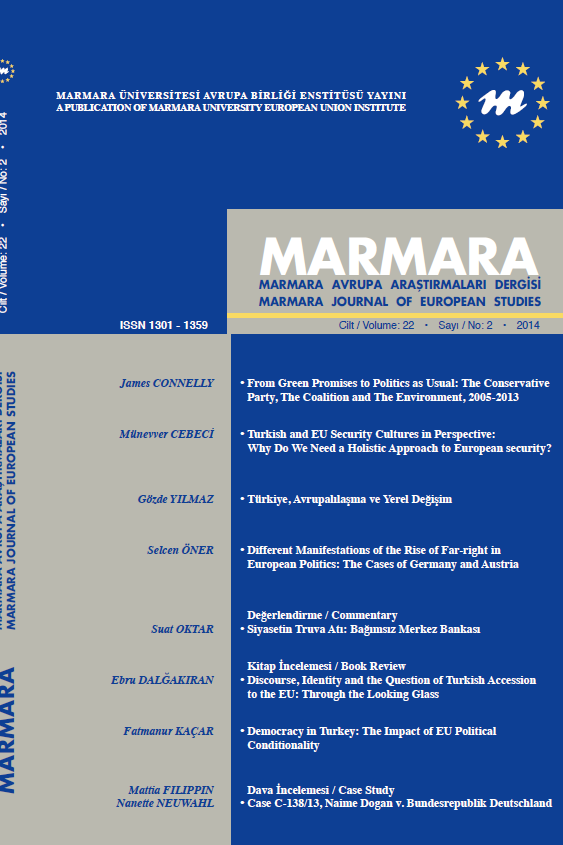THE IMPACT OF BREXIT ON SECURITY AND DEFENCE MULTILATERALISM: MORE COOPERATION OR OVERLAPPING INTERESTS?
Brexit, European Union, NATO, Multilateralism, Security and Defence
___
- Morillas, P. (Ed) (2016) “The Brexit scenarios: Towards a new UK-EU relationship”, CIDOB documents, 07 June 2016.
- Oliver, T. (2015) “Europe's British question: the UK–EU relationship in a changing Europe and multipolar world”, Global Society, 29 (3): 409-26.
- Oliver, T. and Williams, M. J. (2016) “Special relationships in flux: Brexit and the future of the US–EU and US–UK relationships”, International Affairs, 92 (3): 547–67.
- ISSN: 1301-1359
- Yayın Aralığı: Yılda 2 Sayı
- Yayıncı: Marmara Üniversitesi
ON THE AGENDA? THE MULTIPLE STREAMS OF BREXIT-ERA UK CLIMATE POLICY
Jeremy F.g. MOULTON, James SİLVERWOOD
BREXIT: WE’LL CROSS THAT BRIDGE WHEN WE COME TO IT
Rana İZCİ CONNELLY, James CONNELLY
BREXIT AND THE FIGHT AGAINST HUMAN TRAFFICKING: ACTUAL SITUATION AND FUTURE UNCERTAINTY
GERMANY: HOW TO MANAGE BREXIT WHILE TRYING TO SAFEGUARD EUROPEAN INTEGRATION
A CATHARSIS OF THE UNITED KINGDOM’S POLITICAL AND ECONOMIC LANDSCAPE: POST BREXIT
DRIFTING AWAY: UNDERLYING CURRENTS OF BREXIT
BRITISH GENERAL ELECTION 2017: IT’S THE ECONOMY, STUPID!
